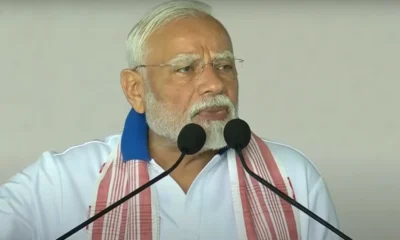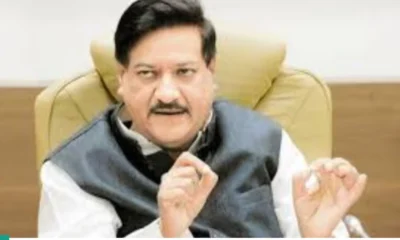GDP growth projection of 7-7.5 percent probably seems too optimistic
The Economic Survey 2018 projects 7-7.5 per cent growth rate in 2018-19, up from 6.75 per cent in the current fiscal, making India once again the world’s fastest growing major economy.
The forecast, that comes within an environment of slow and jobless growth, says the economy will grow on the back of major reforms which would be strengthened further in the next financial year.
“A series of major reforms undertaken over the past year will allow real GDP growth to reach 6.75 per cent this fiscal and will rise to 7 to 7.5 per cent in 2018-19, thereby re- instating India as the world’s fastest growing major economy,” it says.
The survey points out that India can be rated as among the best performing economies in the world as the average growth during last three years is around 4 percentage points higher than global growth and nearly 3 percentage points higher than that of emerging market and developing economies.
It says that the GDP growth has averaged 7.3 per cent from 2014-15 to 2017-18, which is the highest among the major economies of the world.
“That this growth has been achieved in a milieu of lower inflation, improved current account balance and notable reduction in the fiscal deficit to GDP ratio makes it all the more creditable,” it says.
The survey says that after the preliminary analysis of Goods and Services Tax (GST) data, there has been a 50 per cent jump in the number of indirect taxpayers and a huge increase in voluntary registrations, particularly by small enterprises. The number of individual income tax filers increased by over 18 lakh since November 2016 the month when demonetisation was implemented.
As for the optimistic projections of growth rate, if the survey had taken into consideration of the sharply spiking fuel prices, then, possibly, a change of heart would have occurred. On the other hand, since petroleum is still beyond the scope of GST, higher collection from taxes remains a possibility despite shooting oil prices. That might hot, however, translate into higher GDP growth.
What will be difficult to achieve in this scenario would be fiscal discipline and the deficit could well travel beyond control. And, when the resource pool for buying oil grows, even a small appreciation in the value of the Rupee could have major adverse effects at home.
Much of the survey’s optimism stems from an expectation of higher export. That may be so, but if the Rupee has appreciated against the accepted basket of foreign currencies, it will cancel out the positivity and we could well be standing pretty much where we started.
Before going any further, we need to read the substance of the survey which states that growth is on track, revenue collection is on the rise – it has to be remembered that this is the first survey and first Union Budget after the implementation of GST – and fiscal deficit was under reasonable check.
The survey also sees growth in private investment, the hallmark of any growing economy in the next fiscal while also adding flesh to government initiatives in the education and agriculture.
Apart from the fact that this survey’s forecast runs in the face of the government’s own advance GDP data as was available this month – that expected the economy to grow at a four-year low of 6.5 percent in the current fiscal, mainly due to the poor performance of agriculture and manufacturing sector, against last fiscal’s 7.1 percent – it is possibly avoiding this confrontation, especially with jumping fuel prices barking at its feet.
The fiscal deficit target of the government for this fiscal was 3.2 percent of GDP against 3.5 percent in 2016-17, but it is well known that with the elections progressing and things not looking too good, finance minister Arun Jaitley may be forced to take a populist stance, in which case the fiscal deficit target can only be relaxed, with discipline given a go-by.
The projections here, therefore, would taste better with a pinch of salt.


 Latest world news21 hours ago
Latest world news21 hours ago
 Latest world news22 hours ago
Latest world news22 hours ago
 Cricket news22 hours ago
Cricket news22 hours ago
 India News18 hours ago
India News18 hours ago
 India News13 hours ago
India News13 hours ago















